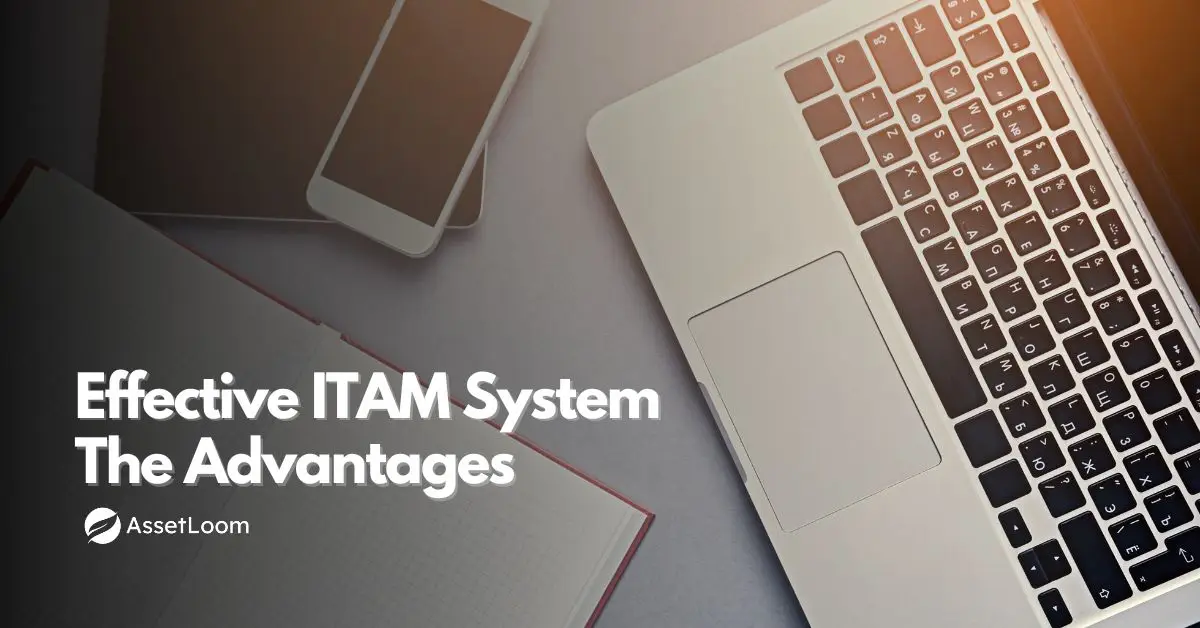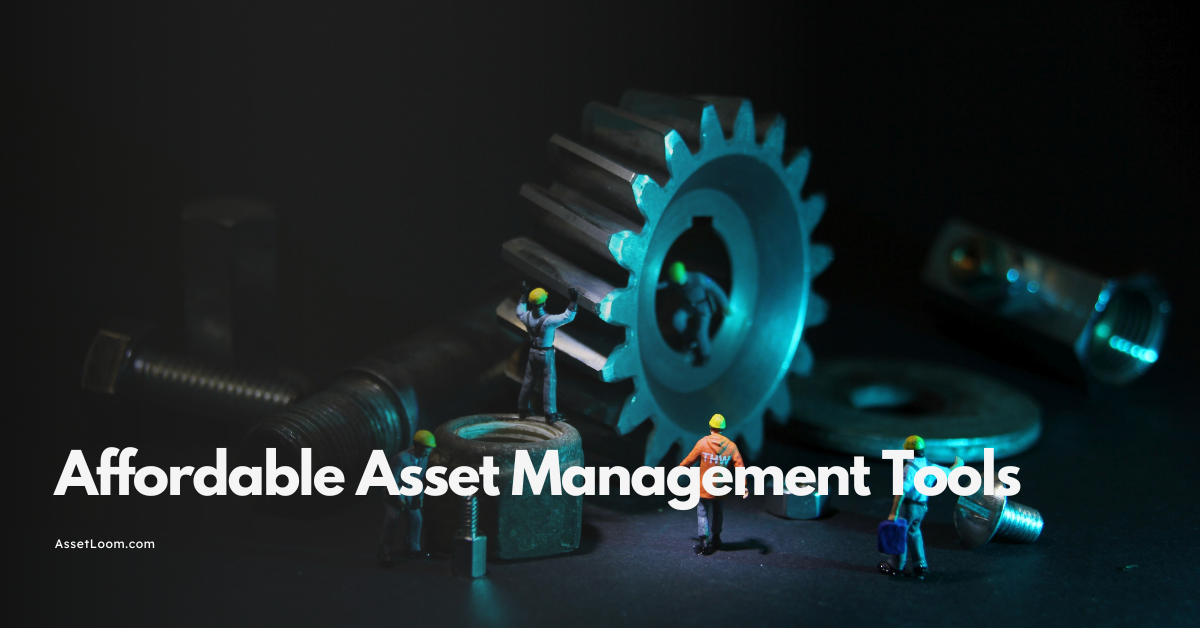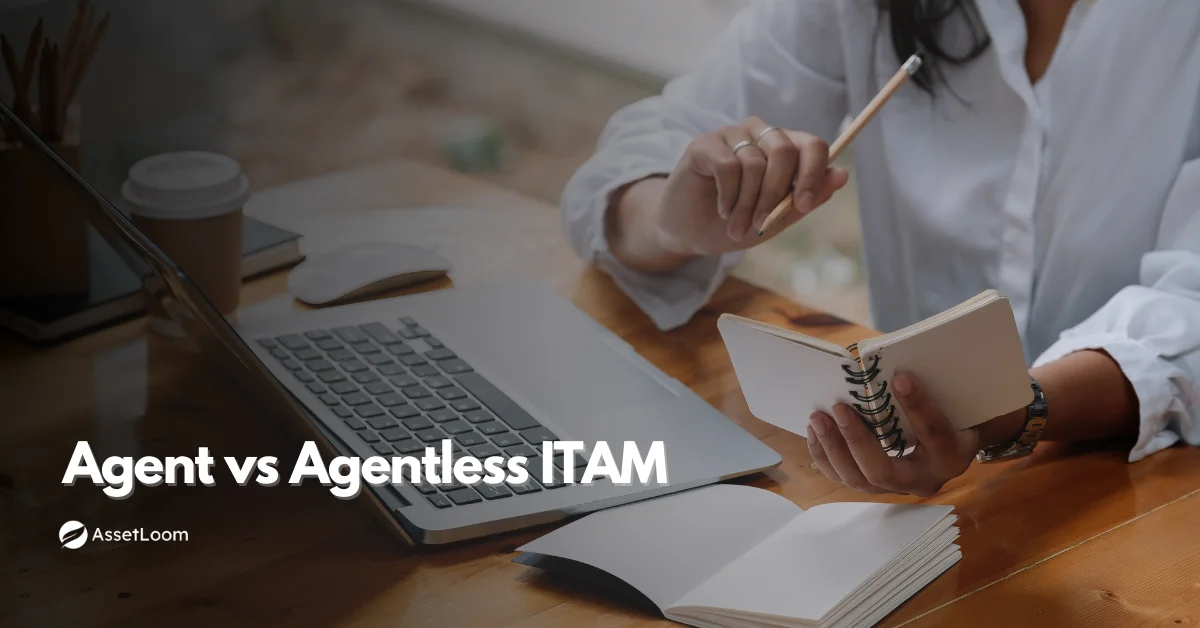Top 7 Ways to Secure Your Laptop from Theft in 2025
By following these seven practical steps, you can significantly reduce the risk of theft and keep your personal and professional data safe.
Laptops have become essential tools in our daily lives. Whether you're a student working on assignments, a professional handling confidential projects, or a traveler staying connected, your laptop stores important work, personal data, and memories. With all that value comes a greater risk of theft and data breaches.
In 2025, securing your laptop is about more than just preventing it from being stolen. It’s about protecting everything inside, from sensitive work documents to personal files and financial information. As threats grow, taking steps to secure your laptop has never been more important.
This blog will guide you through 7 practical ways to protect your laptop from theft. Whether you're just getting started or looking for advanced solutions, these tips will help you safeguard your device and the valuable information it holds.
1. Use Strong Passwords and Enable Two-Factor Authentication (2FA)
A weak password is an open door for anyone looking to access your personal data. With your laptop storing so much of your life: emails, photos, documents, and even financial details. It's crucial to have a strong defense at the first line of entry.
Create Strong, Unique Passwords
Start by making sure your passwords are long, complex, and unique. Instead of using something obvious like "password123," aim for a mix of uppercase and lowercase letters, numbers, and special characters. A password manager can help you generate and store these complicated passwords, so you don’t have to remember them all.
Enable Two-Factor Authentication (2FA)
While a strong password is important, it’s not enough on its own. Two-factor authentication (2FA) adds an extra layer of security by requiring not just your password but also a second piece of information usually a code sent to your phone or email. This makes it much harder for anyone to access your accounts, even if they have your password.
Many services like Google, Facebook, and even your bank offer 2FA. It's easy to set up and adds minimal hassle to your daily use, but it can save you from major security breaches.
Bonus Tip: If your laptop supports it, enable biometric authentication (like fingerprint or facial recognition). It’s not only secure but also fast and convenient, making it a great way to protect your device while saving time.
2. Enable Full Disk Encryption
If your laptop is ever lost or stolen, full disk encryption ensures that your data stays safe, even if someone gets physical access to your device. Encryption works by scrambling the information stored on your laptop so that it can only be accessed with a password or decryption key.
What is Full Disk Encryption?
Full disk encryption protects all the data on your hard drive, making it unreadable without the proper credentials. If someone tries to access the files without the password, they will just see random, scrambled data instead of your documents, emails, or photos.
Even if your laptop is physically stolen, encryption ensures that the thief can’t easily access your files. It’s an extra layer of protection that can make all the difference, especially if you store sensitive information on your device.
How to Set It Up
Luckily, setting up encryption is easier than it sounds. For Windows users, BitLocker is the built-in tool that encrypts your drive. On a Mac, FileVault does the same. Both options are simple to enable, and once they're set up, the encryption runs automatically in the background.
Bonus Tip: After setting up encryption, make sure to back up your recovery key (the key to unlock your data in case you forget your password) in a safe place like a trusted cloud storage or an encrypted USB drive.
3. Use a Physical Lock for Your Laptop
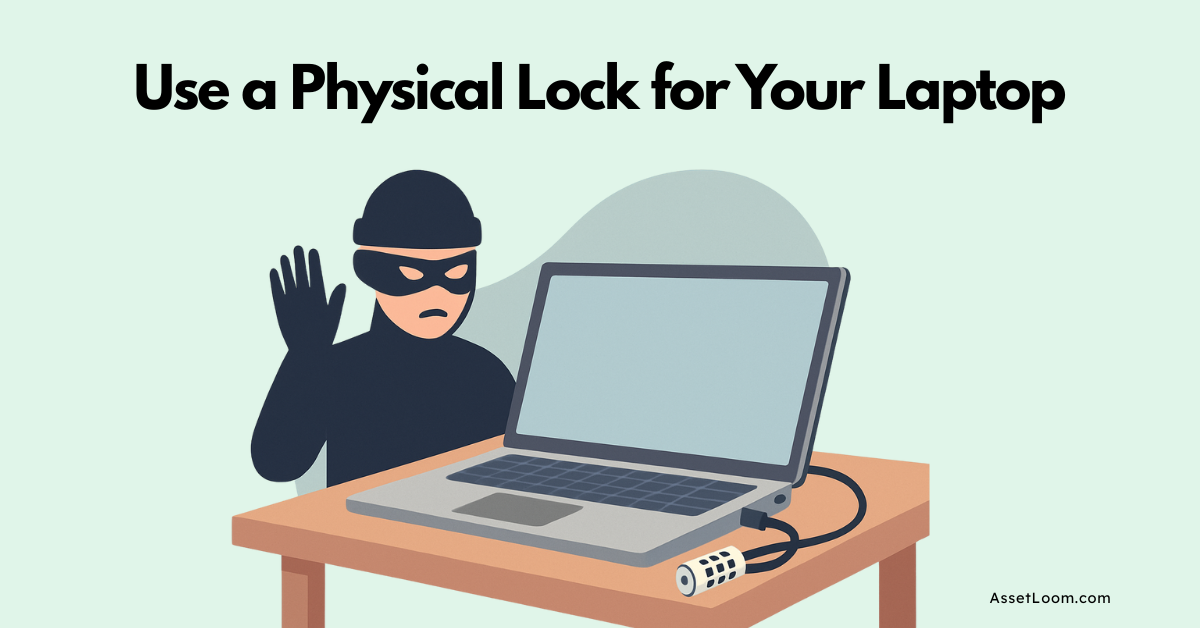
While digital security is essential, don't forget about the physical security of your laptop. Public spaces: cafes, airports, libraries are prime locations for opportunistic thieves. A physical lock can provide an extra layer of protection by making it harder for someone to simply grab your device and run.
A laptop lock physically secures your device to a fixed object, like a desk or chair. It’s a simple but effective deterrent for thieves who might target your laptop in a public or shared space. While it won’t stop someone determined enough to steal it, it makes the process harder and riskier for a thief, increasing the chance they’ll move on to an easier target.
How to Use a Laptop Lock
Laptop locks work through a cable that attaches to the laptop's built-in lock slot, often called a Kensington lock port. The other end of the cable is looped around an immovable object, such as a desk leg. The lock itself works similarly to a bike lock and requires a key or combination to unlock.
You can choose between a basic combination lock or one that uses a key for extra security. Some locks even come with alarm systems that sound off if someone tries to tamper with or move your laptop.
Bonus Tip: Consider using a lock that’s easy to carry but strong enough to deter thieves. A lock that’s lightweight and portable is ideal for those who need security on the go.
4. Enable “Find My Laptop” and Remote Wiping Features
If your laptop does get stolen, tracking it down or erasing your sensitive data is crucial to protecting your privacy. Fortunately, modern laptops come with built-in tools that can help you do both.
Track Your Laptop’s Location
Both Windows and Mac users have built-in tracking tools that allow you to locate your laptop if it goes missing. Find My Device on Windows and Find My Mac on Apple devices let you track your laptop’s location, lock it remotely, or even send a message to the device, all from another device or computer.
These tools can be invaluable, especially if you’re able to catch the thief quickly. The sooner you act, the better the chance of recovering your laptop or stopping unauthorized access.
Remote Wiping for Extra Protection
In case your laptop can’t be recovered, remote wiping features can help protect your data from falling into the wrong hands. Both Find My Device and Find My Mac offer options to wipe your device remotely. This will erase everything on your laptop, including personal documents, passwords, and emails rendering it useless to the thief.
Third-Party Tracking and Security Apps
For added security, consider third-party tracking apps like Prey or Absolute. These apps offer more robust tracking, allowing you to track your laptop’s location in real-time, even if it’s offline. They also provide extra features like capturing photos of the thief or logging their keystrokes, which could help in recovering your device.
Bonus Tip: Make sure to back up important files regularly. If your laptop is wiped, having a recent backup means you won’t lose valuable data. Cloud storage services like Google Drive or iCloud are great for this.
5. Use Secure Connections (Avoid Public Wi-Fi for Sensitive Tasks)
Public Wi-Fi networks may be convenient, but they’re also one of the easiest ways for hackers to intercept your data. Whether you're working in a café, at an airport, or in a hotel lobby, using unsecured Wi-Fi networks can put your sensitive information at risk.
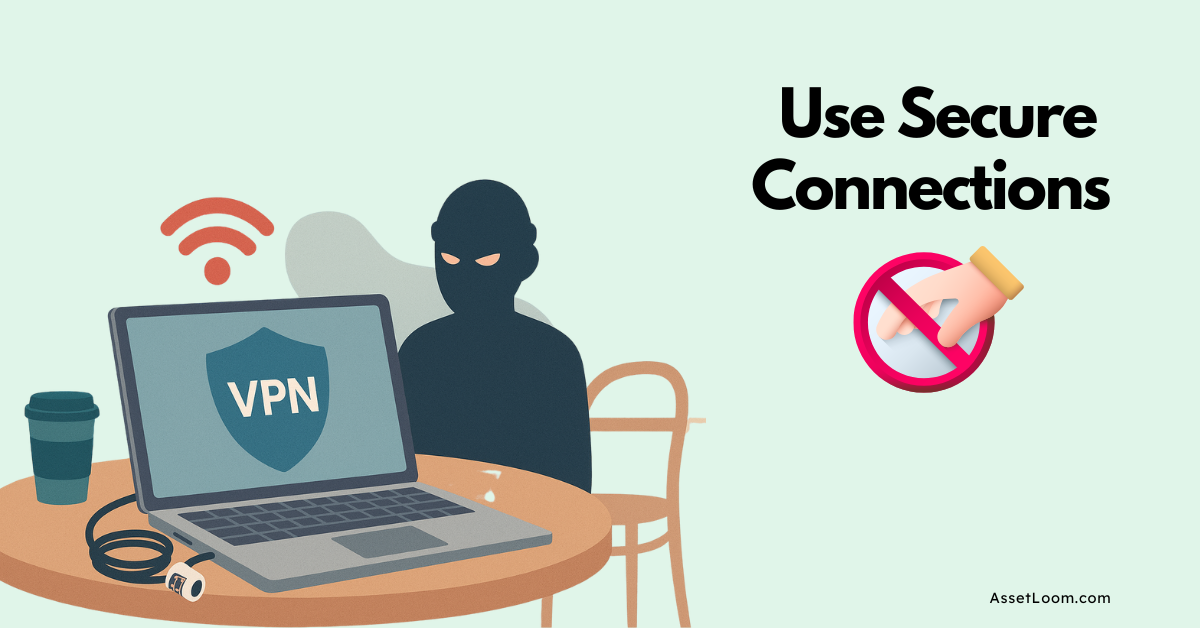
The Risks of Public Wi-Fi
Public Wi-Fi networks are typically unencrypted, which means anyone within range could potentially access your internet traffic. This opens the door to hackers who can steal passwords, monitor your activities, or even access private documents and files on your laptop.
Use a VPN for Protection
To protect your data on public Wi-Fi, consider using a Virtual Private Network (VPN). A VPN encrypts your internet connection, making it much harder for hackers to intercept your data. It’s an extra layer of security that’s simple to set up and can be used with nearly any public Wi-Fi network.
How to Set Up a VPN
There are many affordable and reliable VPN services available, such as NordVPN, ExpressVPN, and CyberGhost. These services offer easy-to-install apps for laptops and can be activated with a single click. When connected to a VPN, all your data is encrypted and routed through a secure server, making it nearly impossible for hackers to access your information.
6. Invest in Anti-Theft Technology: Smart Locks & GPS Trackers
For those looking to take laptop security to the next level, anti-theft technology such as smart locks and GPS trackers can offer peace of mind and an extra layer of protection.
Smart Laptop Locks
Traditional laptop locks are effective, but smart locks go a step further by adding high-tech features that make it harder for thieves to tamper with your device. These locks typically connect to your laptop via Bluetooth, and they can alert you if your laptop is moved or tampered with. Some models even have alarms that sound off if the lock is broken or if your laptop is being stolen.
For example, Kensington's Smart Lock uses Bluetooth to connect to your phone. If the lock is removed without your phone being nearby, it triggers an alarm, helping to alert you to the theft before it’s too late.
GPS Tracking Devices
If your laptop is lost or stolen, a GPS tracker can help you locate it quickly. Devices like Tile and TrackR are small and easy to attach to your laptop or its bag. If your laptop is misplaced or stolen, these trackers use Bluetooth to send location updates to your phone, helping you track down the device.
Some more advanced options, like Prey or Absolute, can offer GPS tracking and additional features, such as taking snapshots or logging the device’s location even when it's offline. This makes it easier to find your laptop if it's lost or stolen.
7. Backup Your Data Regularly
While securing your laptop physically and digitally is essential, there’s one more crucial step that should never be overlooked: regular data backups. If your laptop is stolen, damaged, or lost, a recent backup ensures that you don’t lose everything stored on it.
Losing your laptop might mean losing valuable files, but it doesn’t have to. Backing up your data regularly means you can recover your important documents, photos, and work projects quickly, even if your device is gone. Think of backups as your safety net while your laptop is important, the data you store on it is often even more valuable.
The best way to protect your data is by following the "3-2-1 backup rule." This means keeping three copies of your data: two on different types of storage media (e.g., an external hard drive and cloud storage) and one copy offsite (e.g., in the cloud). This ensures that even if one backup method fails, you have other copies to fall back on.
Bonus Tip: Consider using cloud backup for daily or weekly document syncing and an external hard drive for complete system backups. This combination provides both convenience and redundancy, ensuring you’re covered no matter what happens to your laptop.
Related blogs:
How to Track a Stolen Laptop with Serial Number: Step-by-Step GuideHow to Track a Lost Laptop: A Guide for IT Asset Managers
How Can I Track a Stolen Laptop and Prevent It from Happening Again?
Laptop Tracking Software: Top 5 Must-Have Features
Conclusion
Laptop security doesn't have to be complicated, but it’s essential. By following these seven practical steps, you can significantly reduce the risk of theft and keep your personal and professional data safe. From using strong passwords and encryption to enabling tracking and regular backups, each action makes your laptop more secure.
Remember, the key to effective laptop security is consistency. Start by implementing one or two of these tips, and over time, add more layers of protection. The more secure you make your device, the less likely it will be a target for theft or data breaches.
Now is the time to take action. Protect your laptop today because securing your device means securing your work, your memories, and your peace of mind.

Subscribe for Expert Tips and Updates
Receive the latest news from AssetLoom, right in your inbox.
